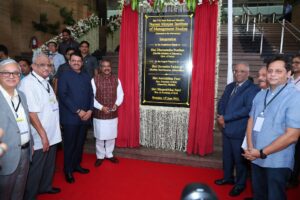
Since tax concessions have been provided with a view that poor and middle class people live less stressful lives. Finance Minister Piyush Goyal on Tuesday said that now individuals earning up to Rs 9.5 lakh can escape liability by using the benefits of saving schemes.
To clear any confusion, the Minister said that he did not propose any change in the tax rate but only provided few rebates which would help boost spending and the economy.
The Finance Bill, which contains tax proposals, was passed by the Lok Sabha with voice vote and that completed the budgetary process in the lower house.
In a dig at the Congress, the Minister said that unlike the previous UPA dispensation, the present Modi government in the interim budget did not reduce levies of SUVs that did not benefit the lower class.
In the Finance Bill 2019, the Minister proposed to raise tax rebate for people having annual income up to Rs 5 lakh from Rs 2,500 to Rs 12,500, which will effectively ensure that they don’t have to pay any tax.
In the Bill, standard deduction has also been raised from Rs 40,000 to Rs 50,000 and loads of tax benefits to home buyers.
Goyal said that the concessions in the budget are aimed at helping the poor and middle class people living on a restrictive income. But he reminds that this is an interim budget. And added that we will have to wait for a tax proposal in July.
The next government, which will come into force after upcoming general elections, will come out with full budget in July. The next government will introduce a new Finance Bill containing the tax proposals for 2019-20.
The Minister said that incase Congress and other opposition parties doesn’t agree that the government should give rebate to middle class tax payers and schemes for farmers, they should write in their election manifesto the intention to reduce tax exemption limit and withdrawing
the farmer income scheme after coming into power.
Goyal was lashing out at issues raised by certain members as to why the government announced concessions in the interim budget, ahead of the general elections.
Elaborating on his tax proposals, Goyal said that the decision to raise the rebate for people having annual income of Rs 5 lakhs was to provide greater certainty about tax liability as salary payments to them is subject to Tax Deduction at Source (TDS).
The Minister said that according to the calculations done by the officials, an individual having income of Rs 9 to Rs 9.5 lakh can escape income tax liability by taking advantage of the various tax savings schemes under the Income Tax Act.
The proposal, Goyal added was welcomed within and outside the house and provides requisite impetus to savings and boost economic growth.
Goyal has said that Modi government in its tenure has tried to benefit every strata of society and taxpayers.
The tax base in the country has risen and hence the tax collection had doubled in the last five years and India’s economy has been growing at a very fast pace.
Goyal said that the higher collections has enabled the government to designate more resources for the socially and economically deprived sections of the society.
The Minister said that the proposal to raise standard deduction from Rs 40,000 to Rs 50,000 and raising TDS limit on interest income from Rs 10,000 to Rs 40,000 will help senior citizens immensely.
The housing sector will also get a boost on account of the proposals including interest subvention and allows capital gains tax exemption on purchase of two flats from proceeds of sale of a house and hiking rebate on repayment of home loans.
The government, he added, was working to ensure house for every citizen when India celebrates 75th year of Independence.
The government policies in maintaining stable property prices, he said, adding the non-performing assets (NPAs) too has remained low in the sector, probably because “housewives insist that the home loans are repaid on time.
Speaking on the fiscal deficit numbers, the Minister said that as a chartered accountant he could have made some adjustments to keep the fiscal deficit to the targeted level of 3.3 percent of the GDP for 2018-19, but refrained from any window dressing and instead prepared the budget honestly.
As per the budget document the fiscal deficit during 2018-19 is expected to go up to 3.4 percent of the GDP as against the target of 3.3 percent.



